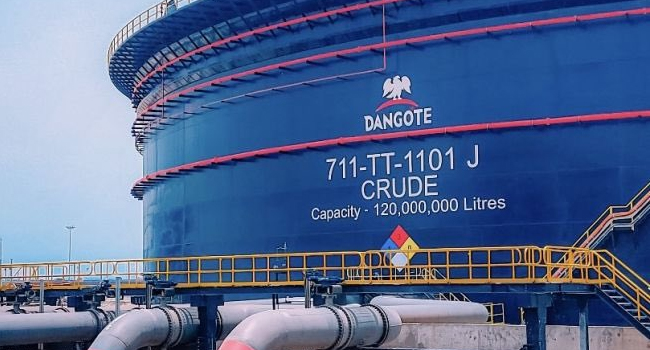
Dangote’s fuel price reduction: A call for NNPCL to step up
The recent move by Dangote Refinery to reduce the fuel pump price is commendable and highlights the potential for locally refined petroleum products to ease the economic burden on Nigerians. However, this development also serves as a wake-up call to the Nigerian National Petroleum Company Limited (NNPCL), which must do more to fulfil its role in ensuring affordable fuel prices for the citizens.
NNPCL has played a crucial role in Nigeria’s energy sector, overseeing the country’s oil production and refining operations. The company has made notable efforts in recent times, particularly with the ongoing rehabilitation of the Port Harcourt and Warri refineries. These are significant steps towards achieving energy self-sufficiency and reducing dependence on fuel imports. However, despite these efforts, fuel prices remain alarmingly high, exceeding N970 per litre, even with locally sourced crude oil.
While Dangote Refinery’s intervention is a welcome relief, it raises important questions. If a private entity can take steps to ease the financial strain on Nigerians, why hasn’t NNPCL, which operates the nation’s public refineries, taken similar action? The company, given its vast resources and national mandate, should be at the forefront of making fuel more affordable.
NNPCL’s Group Chief Executive Officer, Mele Kyari, has demonstrated commitment to improving the sector, particularly in reviving the country’s refining capacity. However, the corporation must go beyond infrastructure improvements and actively work towards translating these gains into tangible benefits for ordinary Nigerians. The expectation is not just for refineries to function but for their operations to lead to a meaningful reduction in fuel costs.
The Federal Government, led by President Bola Ahmed Tinubu, must also prioritise policies that will stabilise fuel prices and address the cost-of-living crisis. Before the removal of the fuel subsidy on May 29, 2023, petrol was below N200 per litre. While subsidy removal was necessary for long-term economic sustainability, Nigerians expected that increased local refining capacity would bring eventual relief. Now that public refineries are reportedly operational, this relief must not be delayed any further.
Even in advanced economies, governments actively intervene in essential services to protect citizens from excessive financial strain. Nigeria should not be an exception. Instead of merely allowing market forces to dictate prices, there should be strategic policies in place to ensure affordability without discouraging private sector investment.
NNPCL deserves commendation for its strides in refinery rehabilitation and its broader efforts in the petroleum sector. However, its responsibility does not end there. The company must engage proactively with stakeholders to find solutions that will bring down fuel prices while maintaining financial sustainability. It must also improve transparency, ensuring that Nigerians fully understand the factors affecting pump prices and what steps are being taken to mitigate them.
Nigerians are resilient, but they should not be left to bear economic hardship without intervention. The government and NNPCL must work together to ensure that the benefits of local refining are passed down to the people as soon as possible. The time for action is now.




